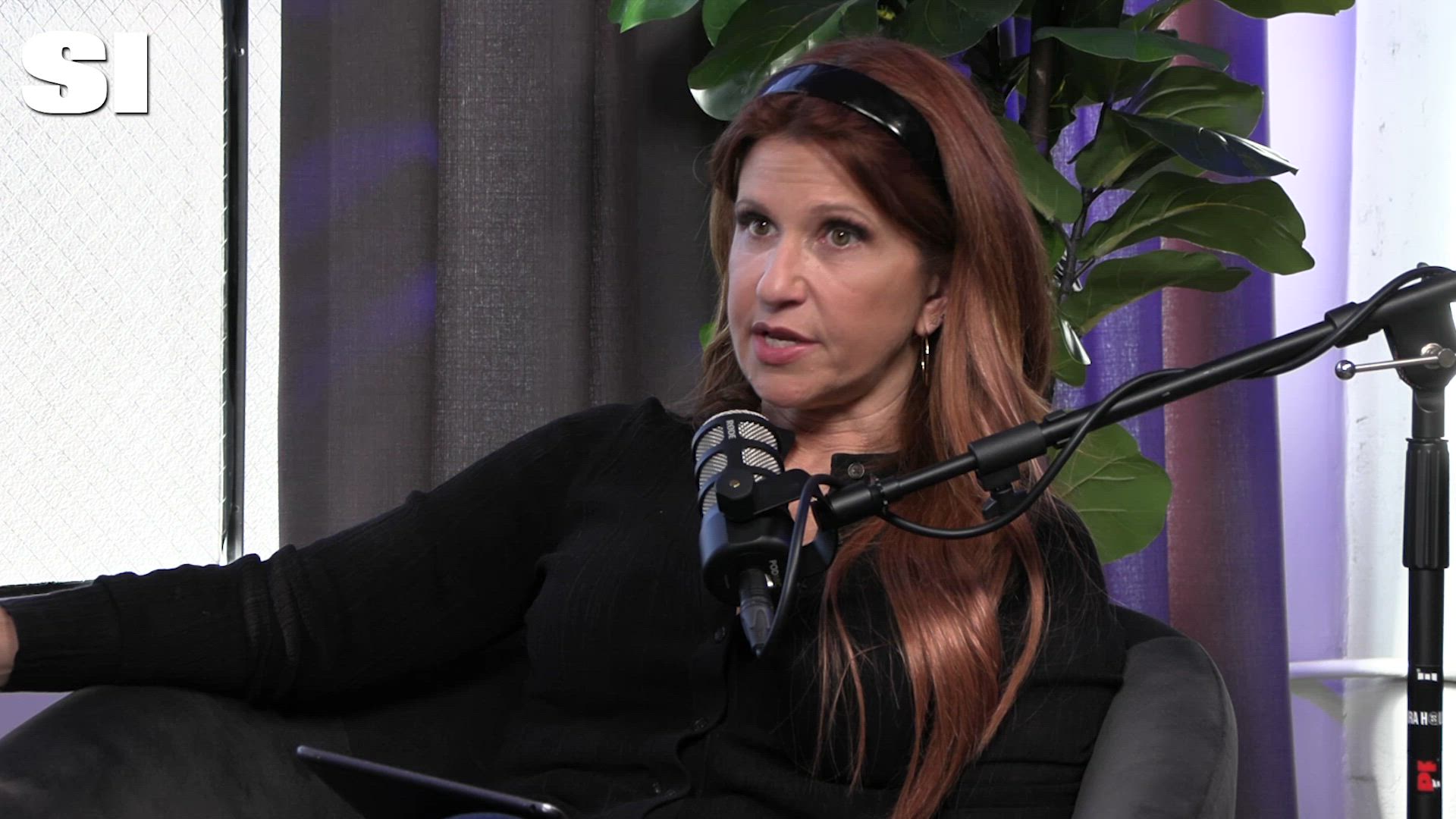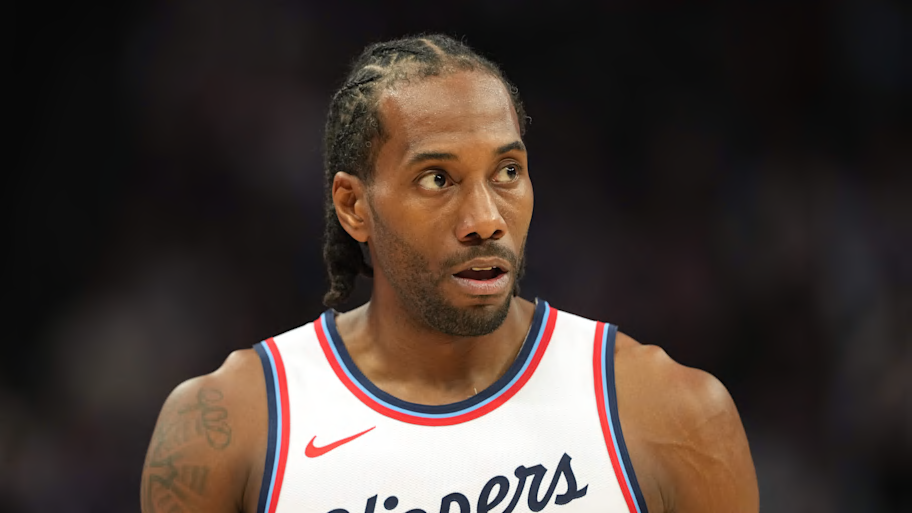
Let’s assume for a moment that every word of Pablo Torre’s reporting on the Clippers is accurate, that the team facilitated a no-show endorsement deal with a now-bankrupt tree planting company that has put $7 million dollars a year in Kawhi Leonard’s pocket, effectively circumventing the salary cap. Then Steve Ballmer, the Clippers’ owner, and everyone in the upper levels of team management are in a world of trouble.
“This is a huge deal,” texted an Eastern Conference executive.
Added a Western Conference general manager, “Bad for them. Very bad. The NBA will be pissed about this. If it’s true, the punishment will be worse than what happened in Minnesota with Joe Smith.”
That case, the NBA’s most high profile (for now) of salary cap circumvention, dates back more than a quarter century. In 1999, Smith, the No. 1 pick in the ’95 NBA draft, signed a one-year, $1.75 million deal with Minnesota. At the time, it was stunning: Smith had rejected an $80 million extension from Golden State a year earlier.
Later, it became clear why: The Timberwolves had an under-the-table agreement with Smith to sign him to a series of one-year deals at short money. That would allow Minnesota to obtain Smith’s Bird rights—which give a team the right to exceed the salary cap to sign the player—and at the end of the third deal, the Wolves would sign Smith to an $86 million contract.
In 2000, the NBA caught wind of the agreement. The punishment was severe: The league docked Minnesota five first-round draft picks (one was later restored). It voided Smith’s contract. Timberwolves owner Glen Taylor was suspended for a year. Kevin McHale, the VP of basketball operations, took a leave of absence for a season.
The Clippers’ alleged antics with Leonard are equally sneaky. If you haven’t seen Torre’s report, it’s well worth a watch. But to summarize: In 2022, Leonard agreed to an endorsement deal with Aspiration, a company with a purported aim to reduce carbon footprints. And one financially backed by Ballmer, who according to documents wired $50 million to it in '21. Leonard would be paid $28 million for his services, Torre reported, through a subsidiary named KL2 Aspiration LLC. And this happened a year after Leonard agreed to a team-friendly, four-year, $176 million deal to stay with the Clippers.
Leonard, Torre reported, provided no services to Aspiration. No commercial appearances. No autograph signings. No social media endorsements. Nothing. Written into the contract, in fact, was language that said Leonard didn’t have to do anything if the ask didn’t line up with his beliefs.
If this rings familiar, it should. In 2019, The Athletic reported the NBA investigated allegations that during Leonard’s free agency, Dennis Robertson, Leonard’s uncle who has served as his de facto representative throughout his pro career, had been asking teams for impermissible benefits. The investigation turned up nothing, but it came with a warning from Olympic Tower: Follow the rules or face the consequences.
If it’s proven the Clippers found a backdoor to pay Leonard more money, what will the consequences be?
“We are aware of this morning’s media report regarding the L.A. Clippers,” NBA spokesman Mike Bass told Sports Illustrated, “and are commencing an investigation.”
In a statement, the Clippers said, “Neither Mr. Ballmer nor the Clippers circumvented the salary cap or engaged in any misconduct related to Aspiration. Any contrary assertion is provably false: The team ended its relationship with Aspiration years ago, during the 2022–23 season, when Aspiration defaulted on its obligations. Neither the Clippers nor Mr. Ballmer was aware of any improper activity by Aspiration or its co-founder until after the government instituted its investigation. The team and Mr. Ballmer stand ready to assist law enforcement in any way they can.”
NBA officials are furious about these allegations, a source familiar with the league office told SI. The NBA has spent years policing tampering. Most infractions are minor and many have been handled with a slap on the wrist. In 2017, the NBA fined the Lakers $500,000 for unauthorized contact with Paul George. In ’21, the Sixers were docked a pair of second-round picks for engaging with Danuel House Jr. and P.J. Tucker before the official start of free agency. In recent years, the NBA has doubled its maximum fine for tampering while implementing strict, spelled-out rules against it.
What the Clippers are accused of is worse. Way worse. For decades the NBA commissioner’s office has sought to create a system that promotes competitive balance. A 2011 lockout spearheaded by David Stern succeeded in reducing the player share of basketball-related income. In ’16, Adam Silver succeeded in getting more punitive luxury-tax penalties into the collective bargaining agreement. In ’23, the NBA instituted tax aprons that both financially punish free spenders and, more importantly, strip team-building tools away from them.
“I think this new system, while I don’t want it to be boring, I want to put teams in a position, 30 teams, to better compete,” Silver said in 2024. “I think we’re on our way to doing that."
Indeed. The NBA is experiencing unprecedented parity. Last season was the sixth consecutive year the league has crowned a new champion. During that stretch no team has advanced to the Finals in back-to-back seasons. Oklahoma City looks like a budding dynasty. But Boston and Denver, the two previous champions, did, too.
Ballmer is accused of disregarding the rules Silver so carefully created. The league has painstakingly worked to prevent wealthy, big-market teams from spending their way to success and they don’t get wealthier than Ballmer (net worth: $153 billion, per Forbes) or more big-market than the Clippers.
“If this is what it looks like,” said another team executive, “I think Adam has to make an example of them.”
That result could be devastating for the Clippers. In Section 3 of Article XIII of the collective bargaining agreement, penalties for cap circumvention by “unauthorized agreements” are spelled out. Some are specific: A team can be fined up to $7.5 million. Others are broader. There can be a “direct forfeiture of first-round picks” as well as one-year suspensions for “any Team personnel found to have willfully engaged in such violation.” The NBA could void Leonard’s contract which, in combination with a loss of draft capital, could cripple the Clippers for years.
Ballmer is a popular figure in NBA circles. Mark Cuban, the Dallas Mavericks minority owner, has already risen to his defense. “I’m on Team Ballmer,” Cuban tweeted, before criticizing the “scammers” at Aspiration and Torre for his reporting. There will, assuredly, be more. Ballmer helped guide the NBA out of the Donald Sterling era. His enthusiasm for the game is infectious. He built the Intuit Dome, the Clippers’ $2 billion stadium, with his own money.
Ballmer isn’t the owner you make an example of. He is the example.
In the end, Silver may be forced to make a difficult decision. Silver likes Ballmer. He appreciates him. He gets the value an ex-Microsoft CEO solely focused on winning brings to the league. But Stern set a precedent for cap circumvention, back when the rules around it were considerably looser. The league has made it clear to teams over the years that it will have little tolerance for the kind of shady dealings Ballmer and the Clippers are accused of. And if the NBA investigation confirms Torre’s report, someone will have to pay a price.
More NBA on Sports Illustrated
This article was originally published on www.si.com as ‘NBA Will Be Pissed’: Execs Predict Severe Punishment for Clippers in Alleged Kawhi Leonard Saga.
